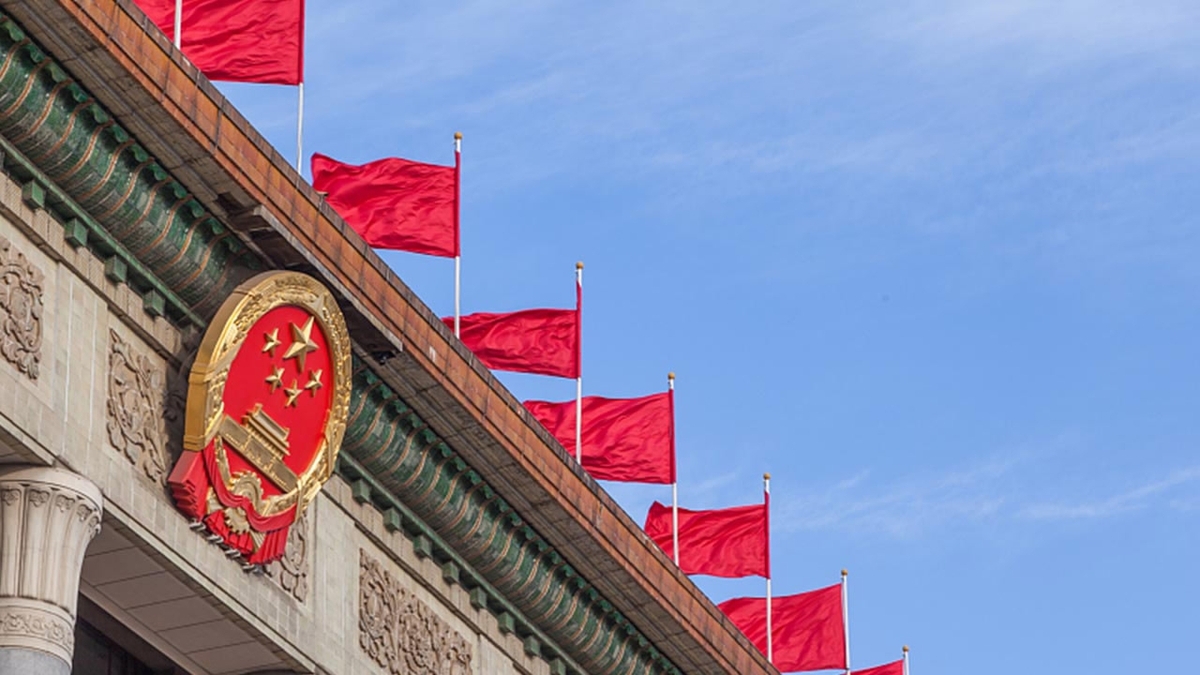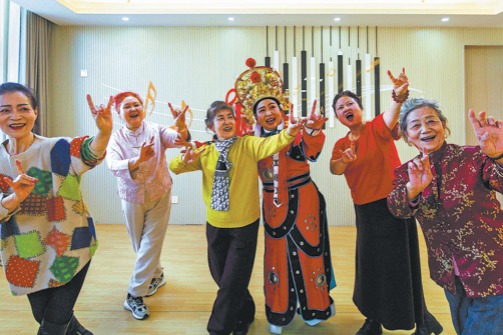China's foreign policy raises Armenia's hopes
By Benyamin Poghosyan | China Daily | Updated: 2021-07-14 07:58

Relations between countries were, are and will be complicated. Their divergent interests often trigger competition and sometimes confrontation. Since ancient times, the motto "might makes right" has been perceived as the governing principle of international relations.
In his famous work History of the Peloponnesian War, the ancient Athenian historian Thucydides described a dialogue between Athens and Melos, focusing on one single sentence-the strong do what they can, and the weak suffer what they must. As an ancient civilization, Armenia-the first Armenian state was established around 2000 BC-has often faced the cruel reality of international relations throughout its 4,000-year history.
The development of the European civilization, started by the Renaissance and continued through the Enlightenment, brought hope to Europe as well as other parts of the world that a new era of international relations will emerge in which the interests of the small states will be protected, and the great powers will cease to use them as pawns in their geopolitical games.
The Armenian nation embraced these developments with enthusiasm, hoping that the European countries and later the United States will pursue a foreign policy based on the principles of justice and fairness. Unfortunately, the reality was quite different. In the 18th, 19th and early 20th centuries, Armenia witnessed the hypocrisy and double standard of the British Empire, German Empire, Austro-Hungarian Empire, and other key players of the European "Grand Chessboard".
The two world wars necessitated the redefining of international relations and upholding of new statecraft principles. The establishment of the League of Nations and later the United Nations triggered hope that after the immense tragedies of the first half of the 20 century, the great powers will abandon their geopolitical manipulations and the motto of "might makes right." Sadly, during both the Cold War and post-Cold War eras, the world witnessed the widespread duplicity and hypocrisy of the leading Western powers.
While bombing Serbia in 1999 on the pretext of saving and spreading "democracy" and invading Iraq in gross violation of international law, the Western powers turned a blind eye to the large-scale human rights violations in the countries that supported their geopolitical agenda.
The world once more saw the US-led West's double standard and hypocrisy in 2020 when it imposed sanctions on and criticized Russia, China and other countries, which do not accept the US' global hegemony, for their alleged human rights violations.
In the current situation, China stands alone as the sole power which strives for fair international relations. Chinese President Xi Jinping's concept of building a community with a shared future for mankind is the only alternative to the predatory policies of the great powers. China calls on the international community to promote partnerships, security, economic growth, inter-civilization exchanges, and build a sound ecosystem.
China is steadfast in its commitment to uphold world peace, pursue joint development, and foster partnerships. China is the only power that has never bullied or invaded any country, while the histories of major European countries and the US are plagued by colonialism, the slave trade, and other abhorrent violations of human rights and human dignity.
China's development and growing strength are a source of hope for small countries such as Armenia, whose interests have for long been sacrificed by the great Western powers. The Belt and Road Initiative is another manifestation of China's foreign policy aimed at win-win cooperation. Chinese investments in hard and digital infrastructure support the developing nations in their pursuit of development, and their efforts to reduce poverty and improve people's living standards.
The generous support of China to the developing world during the COVID-19 pandemic, including the supply of vaccines, is another manifestation of the new foreign policy principles advocated by China.
Armenia and China are friendly countries. They share thousands of years of history and respect traditional values, and are committed to protecting their national identity and sovereignty. Armenia appreciates China's support, including in improving public transportation and medical vehicles, and supplying 100,000 COVID-19 vaccines.
Together with Iran and Georgia, Armenia is working to launch the "Persian Gulf-Black Sea" international multimodal transport corridor to connect Iran with Europe. Armenia believes this corridor can be integrated into the Belt and Road Initiative, providing another route for China to reach Europe via Iran, Armenia, Georgia and the Black Sea.
Sino-Armenian relations have two key dimensions-economic and political. Armenia needs to explore the Chinese market and adhere to an "Export to China" strategy covering different sectors, from agriculture to the mobile app market. On the political front, Armenia should support China in areas significant for Beijing and, as a minimum requirement, refrain from participating in projects that are hostile to Beijing.
In this context, Armenia could consider withdrawing from the "International Religious Freedom or Belief Alliance" or issue a statement that Armenia will not sign any declaration or document of the alliance criticizing China, as the alliance was established by the US with the motive of using it as a propaganda tool against China and exploiting the issue of religious freedom, in order to interfere in China's internal affairs.
China's views on the future of international relations based on win-win cooperation and respect regardless of the size and strength of a country are truly revolutionary. As a small state located at the geopolitical flashpoint with clashing interests of Russia, Turkey, Iran, the US and the European Union, Armenia will benefit much from China's efforts to make international relations fairer and more inclusive. As such, Armenia looks forward to strengthening relations with China and supports it in its efforts to establish a fair and just international environment.
The author is chairman of the Center for Political and Economic Strategic Studies, Yerevan, Armenia.
The views don't necessarily reflect those of China Daily.
























